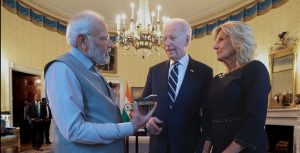The Haryana Assembly, Tuesday, passed a unanimous resolution during a special session, to counter the Punjab Assembly’s stake on Chandigarh.
Chief Minister Manohar Lal Khattar moved the state assembly, demanding the state government not to take any steps to disturb the balance existing between the two states. As per Khattar’s resolution, there should be harmony until the issues arising from Punjab’s reorganization get settled. The CM also highlighted provisions of Section 3 of the Punjab Reorganisation Act, 1966, through which Haryana came into being while making note of the many measures coming into effect because of the same.
Also Read | Chandigarh dispute: Why 3 Indian states are pining for one city
Chandigarh, which is a Union Territory, is the common capital of both Punjab and Haryana.
The Punjab assembly passed a resolution, last Friday, to transfer Chandigarh to the state. Chief Minister Bhagwant Mann accused the centre of attempting to upset the balance in the Union Territory’s administration, and other common assets, through its recent actions. Notably, a section of the Union Territory employees wanted a switch to central services rules in Chandigarh, which the Union government had initially turned down, before agreeing to implement it, causing controversy.
Also Read | ‘This is court order, not forced’: Karnataka CM on use of loudspeakers at mosques
Apart from the Chandigarh issue, Khattar’s resolution also urged the central government to take steps to reconstruct the Satluj Yamuna Link Canal (SYL) canal, complying with the Supreme Court. It read, “The right of Haryana to share waters Ravi and Beas rivers by the construction of the SYL canal were is historically, legally, judicially and constitutionally established over time. The august House has unanimously on at least seven occasions passed resolutions urging the early completion of the SYL canal”.
Haryana Home Minister Anil Vij added to this, saying, “Haryana will continue to remain in Chandigarh until we get Satluj Yamuna Link Canal (SYL) water, Hindi-speaking regions, and money from the Centre for establishing a new capital”.






